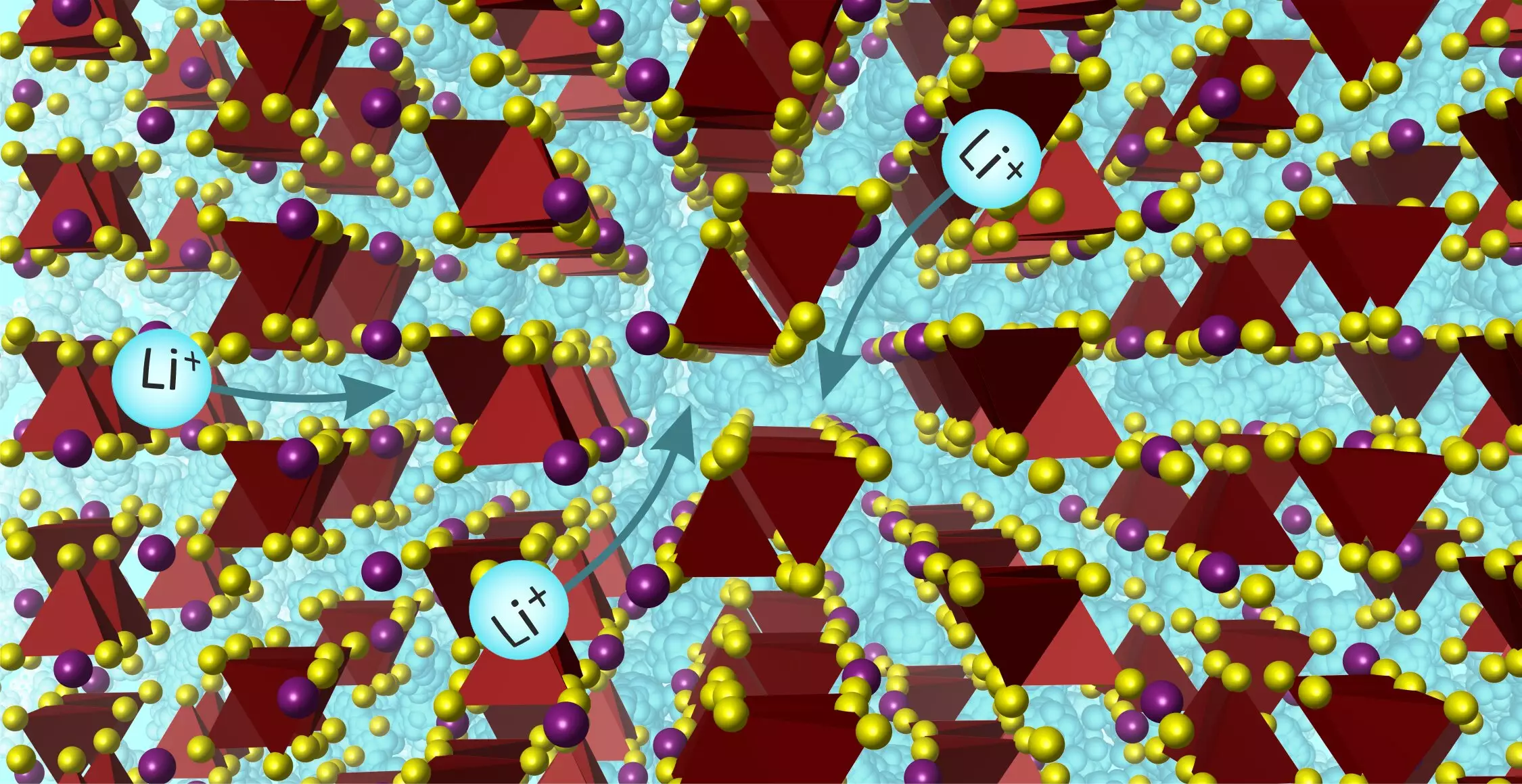Advancements in materials science play a crucial role in addressing global priorities such as achieving Net Zero. Scientists are constantly striving to design and discover new materials that can revolutionize industries and contribute to a sustainable future. Among the key areas of focus is the development of high-performance solid-state electrolytes for rechargeable batteries. In a recent groundbreaking study, researchers at the University of Liverpool have made a significant breakthrough in this field by uncovering a solid material that exhibits rapid lithium ion conductivity.
Published in the prestigious journal Science, the research paper titled “Superionic lithium transport via multiple coordination environments defined by two anion packing” unveils the remarkable potential of a newly synthesized material. Composed of non-toxic Earth-abundant elements, this material surpasses the Li ion conductivity of liquid electrolytes commonly used in current Li ion battery technology. Not only does it present a safer alternative, but it also enhances energy capacity. The interdisciplinary research team employed a transformative scientific approach to design, synthesize, and characterize the material, ultimately demonstrating its effectiveness in a battery cell.
Revolutionizing the Field
Unlike most solid materials, which possess a limited range of ionic environments, the new material features numerous coordination environments for the mobile ions. This unique characteristic challenges the existing understanding of high-performance solid-state electrolytes. By significantly expanding the available chemical space, this breakthrough opens up avenues for further discoveries and optimizations in materials science. It marks a departure from the traditional reliance on a narrow range of ionic environments and introduces a disruptive design approach that harnesses artificial intelligence (AI), physics-based calculations, and expert chemistry knowledge.
While there have been reports of AI tools being utilized independently to identify potential new materials, this study emphasizes the crucial role of human expertise. By combining AI algorithms with the insights and decisions of chemistry experts, the research team successfully addressed the complex challenges associated with real-world materials discovery. This collaborative approach ensures that AI tools do not simply reproduce known materials but instead generate novel compositions and structures. It guarantees that the impact on material properties is thoroughly assessed based on a deep understanding of the underlying science.
Unlocking a New Route to High-Performance Materials
The discovery of this groundbreaking material signifies a significant milestone in the field of solid-state electrolyte technology. Its exceptional Li ion conductivity not only paves the way for the development of safer and more efficient lithium-ion batteries but also provides a platform for further research and optimization. By gaining a comprehensive understanding of the material’s structure and properties, scientists can explore its potential applications in various industries. Moreover, this discovery-based design approach serves as a blueprint for future endeavors in identifying other high-performance materials that rely on the fast motion of ions in solids.
The researchers at the University of Liverpool have achieved a remarkable breakthrough in materials science by designing and discovering a solid material with unprecedented Li ion conductivity. Their transformative approach, combining AI, physics-based calculations, and chemistry expertise, has challenged conventional notions of high-performance solid-state electrolytes. This discovery not only offers an alternative to liquid electrolytes but also opens up new avenues for materials optimization and exploration. With the potential to revolutionize industries such as electric vehicles and electronics, this groundbreaking material represents a significant step towards a sustainable and technologically advanced future.


Leave a Reply